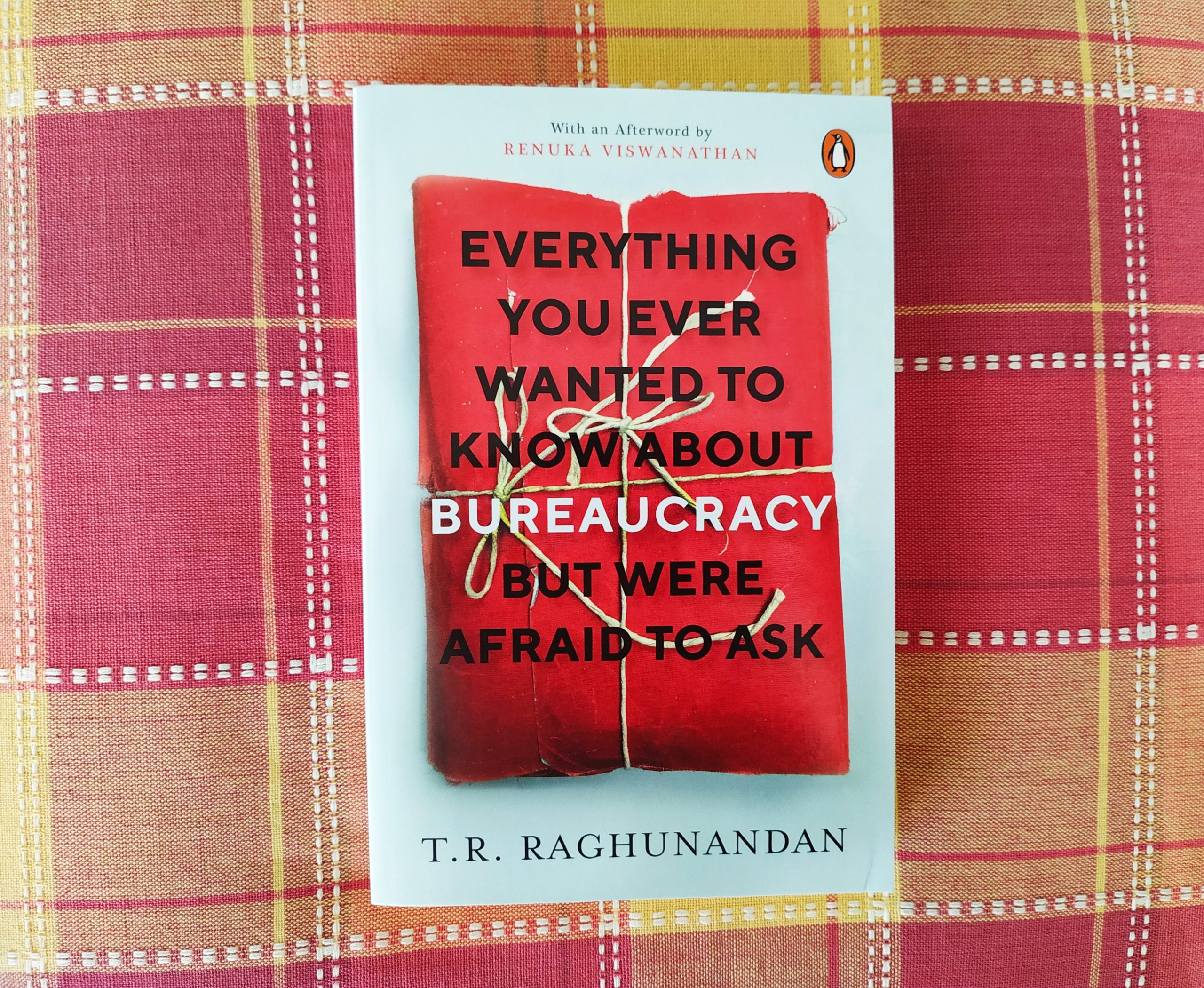
Whatever its faults, the Indian bureaucracy cannot be accused of bias when it comes to confounding those who have to deal with it. Veteran insiders who return to it with their petitions after retirement are as clueless about how it functions as freshly minted supplicants. Outsiders have little knowledge of who is responsible for what and why, or how to navigate that critical proposal through the treacherous shoals of the secretariat.
In this humorous, practical book, T.R. Raghunandan deconstructs the structure of the bureaucracy, for the understanding of the common man and replaces the anxiety that people feel when they step into a government office with a healthy dollop of irreverence.
Here is an excerpt from the book!
————————————————————–
Overview or Lay of the Land
One of the first things that I did when I sat down to write this book was to google the meaning of the word ‘bureaucracy’. One needs some impetus to write a book and googling is the mental equivalent of leaning a scooter so that precious petrol flows into the carburettor. The Cambridge dictionary website—as good a place as any on the Internet to search for the meaning of words—defines bureaucracy as a system for controlling or managing a country, company or organization that is operated by a large number of officials employed to follow rules carefully. I would narrow down that meaning for the purposes of this book to the people who run the government, excluding the elected representatives. There is no disagreement with the ‘lots of people’ part of the definition. A wait at the Central Secretariat Metro Station in Delhi during rush hour will leave nobody in doubt that the Indian bureaucracy comprises lots and lots of people. Whatever its faults, the Indian bureaucracy cannot be accused of bias when it comes to confounding those who have to deal with it. Veteran insiders who return to it with their petitions after retirement are as clueless as freshly minted supplicants about how it functions.
While autobiographies of bureaucrats extract plenty of amusement from the mysterious ways of the bureaucracy,
such reminiscences have little practical value; readers gain no practical tips from them on how to coax government
officers to actually function. Outsiders in any case, have little knowledge of who is responsible for what and why, or how to navigate that critical proposal through the treacherous shoals of a secretariat or directorate. At the top of the bureaucracy heap is the fast-tracked elite civil servant, who belongs to a group of generalist and specialized services selected through competitive examinations. While no one of the several services that comprise this exclusive club is officially considered superior to the other, the Indian Administrative Service (IAS) is generally regarded as the most powerful and, therefore, the most desirable by aspirants. The aura of the IAS has remained intact over the years. Their tribal loyalties, handed from one generation to the other like a sacred fire, ensure preferential access to positions from where they not only construct policies for the country, but also develop rules, precedents and conventions that set them apart from the rest. Therefore, the IAS still remains the primary aspirational goal
of all those who take a shot at the competitive examination year after year.
Yet, like every elite and powerful group, the IAS vehemently denies the concentration of any power in it.
‘We have no powers, “saar”. We have to do whatever politicians ask us to do,’ they say, shaking their heads
ruefully. The most one can extract from them is a reflection that things are no longer like they were before, a refrain that has been heard so often over the past seventy years that it has no meaning whatsoever.
Read Everything You Ever Wanted to Know about Bureaucracy But Were Afraid to Ask to know more!









